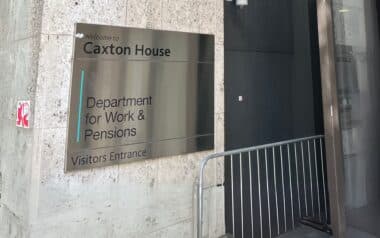The government’s planned welfare reforms have sparked significant controversy among Labour MPs, with concerns over the potential impact on disabled people and those with long-term health conditions. Work and Pensions Secretary Liz Kendall has moved to soften the impact of these changes, but opposition remains strong within her own party.
Kendall’s reforms, aimed at saving £5 billion a year by 2030, are part of a broader strategy to reduce the welfare bill, which is projected to reach £70 billion annually by the end of the decade.
The most contentious part of the proposal involves making it harder for disabled people with less severe conditions to claim Personal Independence Payment (PIP). In response to the criticism, Kendall has introduced several measures she claims will protect the most vulnerable, but Labour MPs are divided over whether these changes go far enough.
Softening the Impact on Disabled People
One of the main aspects of Kendall’s welfare reform package is the reduction of PIP for certain disabled people. According to government projections, approximately 370,000 current PIP recipients will no longer qualify, with an additional 430,000 future claimants facing reduced benefits.
However, in an attempt to mitigate the blow, Kendall has proposed extending the transitional period for those losing PIP from the usual four weeks to 13 weeks. This adjustment aims to give recipients more time to adjust before their benefits are cut.
Carer’s Allowance, which provides financial support to individuals who care for disabled people, will continue during this transitional period but will cease once PIP payments stop.
Kendall has insisted that these changes are necessary to ensure the sustainability of the welfare state, but critics argue that they do not address the fundamental issues with the proposed cuts.
Several Labour MPs, including Neil Duncan-Jordan, have voiced their opposition, calling the changes insufficient. Duncan-Jordan noted that “poverty delayed is still poverty,” highlighting concerns that the temporary delay in benefit cuts would not alleviate the long-term financial strain on affected individuals.
Labour’s Growing Opposition
While Kendall’s attempts to soften the welfare reform have been met with some support, they have done little to quell opposition within Labour. Many MPs remain staunchly opposed to the cuts, fearing that they will push a significant number of people, including children, into relative poverty.
According to the government’s own impact assessment, the cuts could push 250,000 individuals, including 50,000 children, into poverty. In response, some Labour MPs have called for the cuts to be reversed entirely, citing the U-turn on winter fuel payments as an example of the government’s flexibility in the face of public pressure.
Despite these calls, Chancellor Rachel Reeves has firmly rejected any changes to the proposed cuts. Reeves has stated that the government is committed to reforming the welfare system, arguing that these measures are necessary to tackle long-term sickness and support the disabled back into work.









